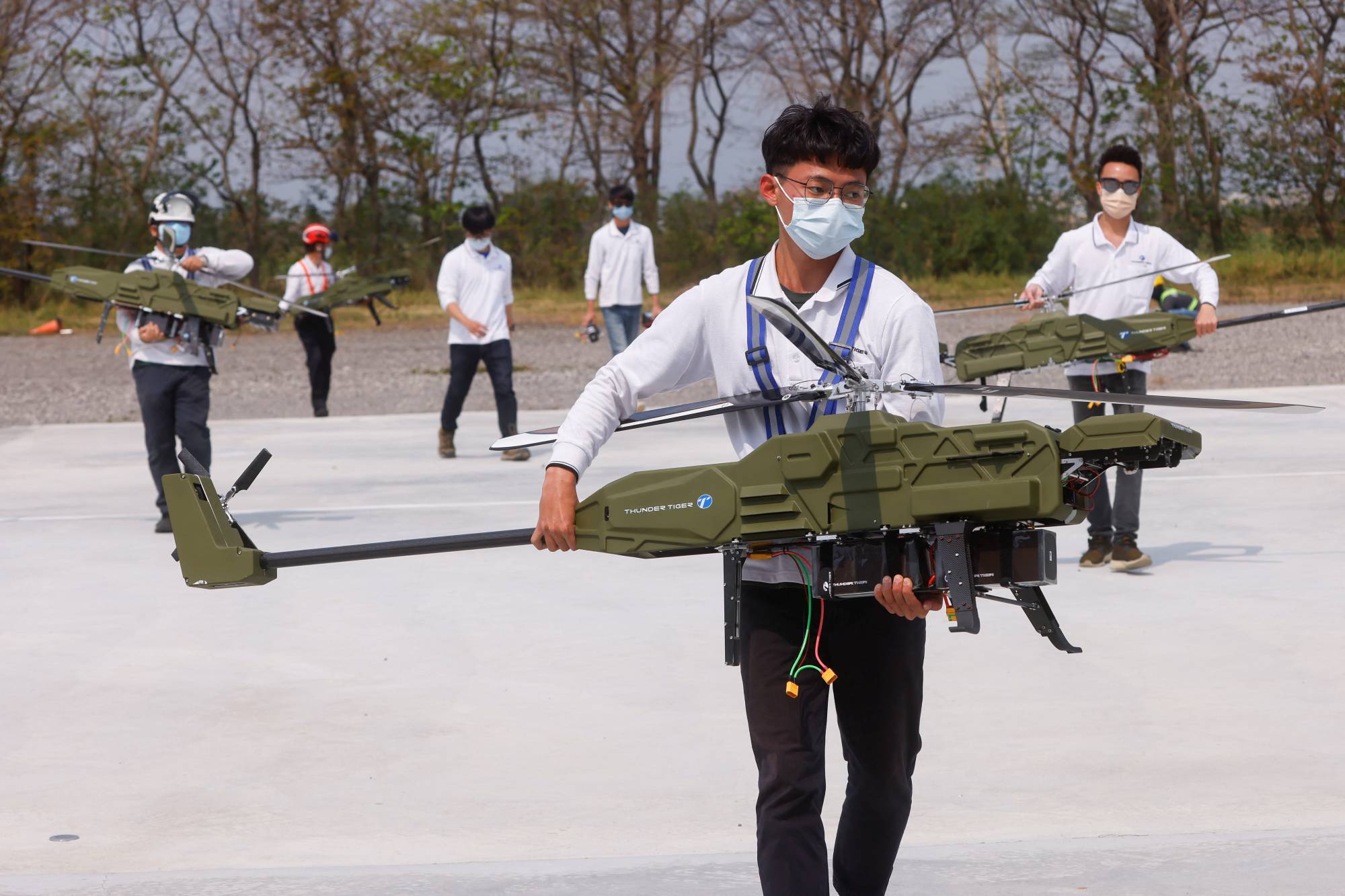In response to the rising threat posed by China’s military power, Taiwan’s President Tsai Ing-wen has taken inspiration from Ukraine’s successful use of drones to counter a stronger adversary. In the summer of 2022, President Tsai met with senior officials to discuss the need for Taiwan to arm itself with aerial drones. As a result, a strategic plan called the “Drone National Team” program was initiated to bridge the gap between Taiwan and China in terms of drone capabilities.
Taiwan’s Drone Lag Behind China
Taiwan currently lags significantly behind China in the drone domain. With only four types of drones and a fleet size in the hundreds, Taiwan’s drone capabilities fall short compared to China’s People’s Liberation Army, which boasts over 50 drone types, amounting to tens of thousands of units.
Ambitious Goals of the “Drone National Team” Program
In response to the drone disparity, President Tsai’s “Drone National Team” program aims to foster collaboration between Taiwan’s commercial drone makers and aviation firms with the military. The strategic plan seeks to develop a self-sufficient drone supply chain and manufacture more than 3,200 military drones by mid-2024. These drones will range from mini-drones weighing less than two kilograms to larger surveillance craft capable of covering a distance of 150 kilometers.
Private Sector Collaboration Expedites Production
To expedite the production process, Taiwan’s government has involved private companies in the research and development phase of the “Drone National Team” program. Nine private firms, including Thunder Tiger Group, renowned for manufacturing radio-controlled model aircraft, have already joined the effort. Their expertise in aviation, telecommunications, and electronic component production will contribute to the program’s success.
Taiwan’s “Drone National Team” program is a crucial step toward enhancing its defense capabilities and ensuring its security amid China’s growing military power. By rapidly developing its drone technology, Taiwan aims to achieve a level of air supremacy similar to that of Ukraine, effectively offsetting the advantages of a more powerful adversary. The success of this program will be critical in safeguarding Taiwan’s sovereignty and maintaining regional stability.
















